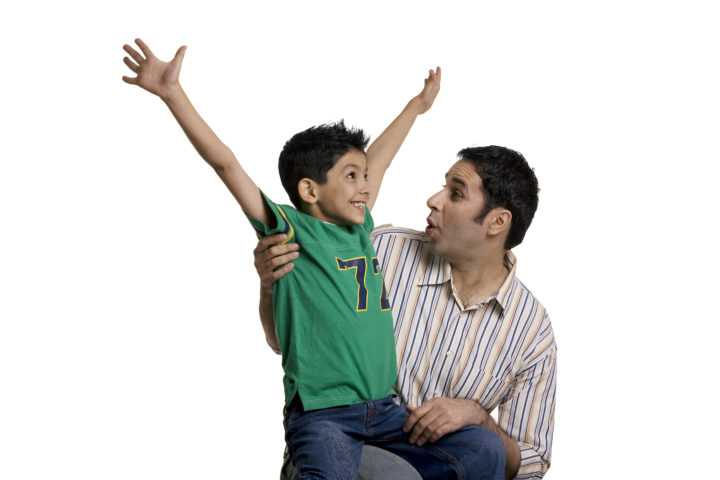Internet Safety: 4 Ways Parents Can Protect Their Kids Online!
The Internet is a wonderful place- from chatting with friends halfway across the world, watching cute animal videos to learning just about anything under the sun, there’s not much you can’t do online. That being said, it’s very possible to come across inappropriate and illegal content accidentally while you’re browsing something completely unrelated to it. There are also issues like cyberbullying and identity theft to consider, which means that as a parent, you need to be vigilant about what your children do online and how they use the Internet.
Don’t let this scare you into assuming that your kids are better off without the Internet; you won’t be able to protect them by depriving them of privileges. Instead, learn how to stay safe online and what you can do to keep your kids protected!
If you’re unsure how to begin, here’s what you need to know.
Educate Yourself
You can’t keep your kids away from the dangers of the Internet if you don’t know what’s out there. So even if you are good with computers, tablets, and mobile phones, do take some time out to understand how the Internet works. Also keep tabs on new and interesting websites, games and apps and learn about them so you can take informed decisions whenever needed.
Learn from your kids by asking them questions about the Internet and the websites they frequent without being intrusive. All the same, make sure you ask the right questions. If you turn to your kids for help with, say for example, checking browser history, you are doing it wrong- they might feel that you want to spy on them. Moreover, they might look for ways to keep their online activities a secret from you.
Do the Right Thing
Children are more vulnerable to online predators than adults, so you’ll have to revisit the rules keeping your kids in mind this time. Knowing what’s right and what’s not will help you act responsibly while also setting a great example for your kids in relation to online safety.
- Keep your family safe from phishing and spam e-mails, viruses and other cyber crimes with the help of a good Internet security suite. Secure your home network with a strong password and be sure to change it regularly. Avoid clicking questionable links and ads you see on websites you’re browsing or that you receive in e-mails or messages from people you don’t know.
- Revealing personal information like full names, birth dates, phone numbers, address, name of school, etc. can put your children at the risk of predators as well as identify theft. So ensure you and your kids aren’t making any such information public on profile pages, in images or in online conversations. Also teach kids to not share passwords with anyone.
- Observe netiquette- it’s important to communicate right as the other person can’t always see or hear you and gauge your emotions. Avoid spreading rumours and saying mean or hurtful things. Teach kids to not write or post things they would never say to someone in person or that they wouldn’t like to hear themselves. Practice formal as well as informal communication.
- Realize that it’s easy for anyone in the world to assume a false identity online, which is why you must always be cautious when conversing with strangers. Explain this to your kids and instruct them to not talk to people they don’t know. Nevertheless, do keep a track of who your kids interact with online and what they talk about to their online ‘friends’.
- Restrict kids from using social networking sites and other websites that they are not old enough to use. If you want to let them, have them sign up using your e-mail ID or create a suitable e-mail ID for them. Remember to set strong passwords!
- Use e-mail IDs, chat names and screen names that are not gender-specific. Needless to say, avoid sexual or suggestive words.
Have Policies in Place
Make a list of safe Internet usage policies and explain to your kids why they need to be implemented. Don’t give them vague warnings; be specific and they’ll certainly understand. Let them know that as their parent, you have their best intentions at heart and that they need adult supervision until they’re old enough to take such decisions by themselves.
Here are some policies you can implement first:
- If you have a computer, place it in a common area of the house. If you have laptops, urge kids to use them in common areas like living or dining rooms.
- Have kids take your permission before installing apps or games or downloading anything on all devices.
- Check if the websites your kids use frequently are suitable for them. If they are, put them on the ‘acceptable list’ so that your kids can access them without taking your permission. Block websites hosting content that’s not age-appropriate for kids.
- Ensure kids are not accessing websites using accounts other than the ones you’ve created for them. Instruct kids to not change the passwords themselves and closely monitor privacy settings on all online accounts.
- Limit screen time for games and chatting with friends, and overall Internet use. Encourage kids to participate in other activities so as to keep them from being addicted to the Internet.
Establish a Healthy Relationship with Your Children
It is important to make your children feel that they can talk to you about anything. So establish a healthy relationship with them by making them a priority and by spending time with them. Just as you ask them about their day in school, take an active interest in how they spend their time online. Sit next to them while they are playing games, watching videos, chatting with friends/relatives or using online learning apps or websites like Flinnt.
Above all, build trust and let your kids know that they can come to you with their problems without feeling guilty about having done something wrong.
Conclusion
Learning to use new technology and familiarizing yourself with jargon can be a daunting task; however, staying a step ahead of your kids is a must to keep them safe while they’re online.
We hope the above information will help you do just that! Do let us know in comments what steps you take to keep your kids safe online.
Related Posts
- ← Flinnt Update for Educators: Now Exercise Control over the ‘Contents’ Section Using Our Mobile App!
- Self-Regulated Learning Is the Way to Go: A Quick Read →















